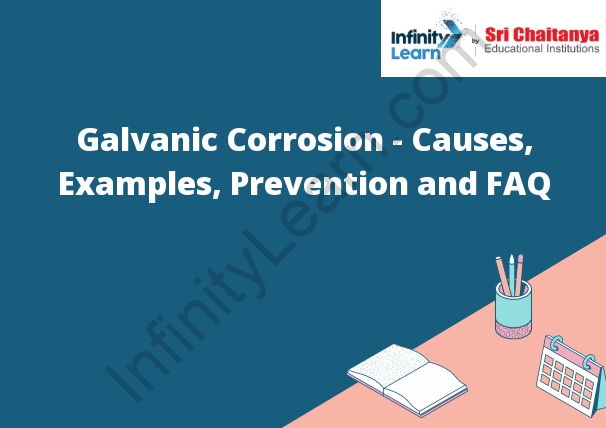Table of Contents
Galvanic Corrosion
Galvanic Corrosion – Causes: Galvanic corrosion is a type of corrosion that occurs when two dissimilar metals are in contact and are electrically connected. The more reactive metal will corrode faster than the less reactive metal. This type of corrosion can be accelerated by the presence of an electrolyte.

Introduction
Galvanic corrosion is a type of corrosion that is caused by two different metals coming into contact with each other while in an electrolyte. The electrolyte is a solution that contains ions, which are atoms or groups of atoms that have lost or gained electrons. When two different metals come into contact with each other in an electrolyte, the ions in the electrolyte can move from one metal to the other. This can cause the two metals to corrode, or wear away.
The most common type of galvanic corrosion called anodic corrosion. Anodic corrosion caused by the metal that is more active, or has a higher electrode potential, corroding more quickly than the other metal. The more active metal will lose electrons, which will cause it to become more positive. The less active metal will become more negative. The two metals will continue to corrode until they reach a state of equilibrium, where the rate of corrosion is the same for both metals.
There are several factors that can affect galvanic corrosion. The most important factor is the type of electrolyte. The stronger the electrolyte, the more quickly the metals will corrode. The pH of the electrolyte can also affect corrosion. The higher the pH, the more active the metal will be, and the more quickly it will corrode. The temperature of the electrolyte can also affect corrosion. The higher the temperature, the more active the metal will be, and the more quickly it will corrode.
Galvanic corrosion can prevented by using insulators to prevent the two metals from coming into contact with each other. If two metals must be in contact with each other, they can be separated by a barrier that will prevent the electrolyte from reaching them. The most common type of barrier is an insulation sleeve.
CAUSES OF GALVANIC CORROSION
Galvanic corrosion is a type of corrosion that takes place when two dissimilar metals in contact and electrically connected. The two metals will form an electrochemical cell, and the metal with the higher electrode potential will corrode more quickly.
There are several factors that contribute to galvanic corrosion:
- The type of metal
- Type of metal connector
- The type of electrolyte
- The temperature
- The surface area of the metals
GALVANIC CORROSION EXAMPLES
- In a galvanic corrosion system, two dissimilar metals are in contact and an electrical current flows between them. The metal that is more active (has a lower electrode potential) corrodes faster than the metal that is less active.
- Some common examples of galvanic corrosion are the corrosion of a steel nail in an aluminum can, the corrosion of a copper roof in contact with a steel frame, and the corrosion of brass fittings in contact with copper piping.
PREVENTION OF GALVANIC CORROSION
Galvanic corrosion is a type of corrosion that can occur when two different types of metal are in contact with each other in the presence of an electrolyte. The two metals will form a battery, and the more active metal will corrode faster than the less active metal.
The best way to prevent galvanic corrosion is to isolate the two metals from each other. This can done by using a non-conductive material between the two metals, or by using a metal that is more active than both of the other metals.






